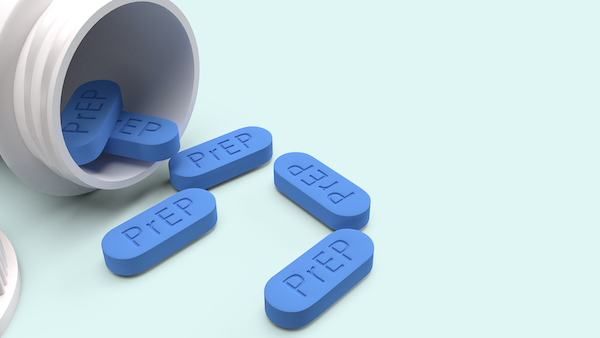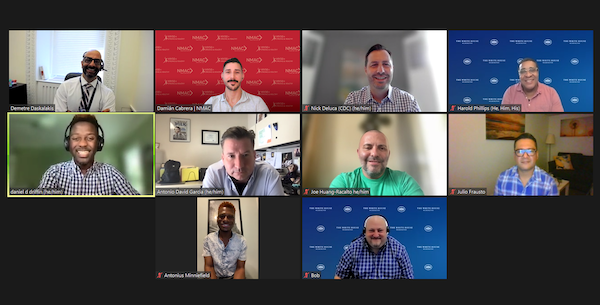June 30, 2023 – NMAC policy expert Toni Newman released the following statement condemning the Supreme Court’s latest ruling against the LGBTQ+ community in the 303 Creative, Inc. v. Elenis […]


June 30, 2023 – NMAC policy expert Toni Newman released the following statement condemning the Supreme Court’s latest ruling against the LGBTQ+ community in the 303 Creative, Inc. v. Elenis […]

June 29, 2023 – NMAC policy expert Toni Newman released the following statement condemning the Supreme Court’s ruling overturning affirmative action in higher education in the Students for Fair Admissions […]

April 3, 2023 – The following is a statement from NMAC Executive Director Paul Kawata on the announcement that the Biden administration has appealed a federal district court ruling that […]

March 30, 2023 – The following is a statement from NMAC Executive Director Paul Kawata on a federal district court ruling that would allow insurance companies to avoid providing preventive […]

Jan. 27, 2023 – Following is a statement from NMAC Executive Director Paul Kawata on the FDA’s announced changes to blood donation restrictions for men who have sex with men: […]

NMAC Applauds Congressional Efforts on Minority AIDS Initiative With the passage of the FY2023 Omnibus bill, NMAC (formerly the National Minority AIDS Council), the Latino Commission on AIDS, and the […]

Following is a statement from NMAC Executive Director Paul Kawata on the federal court decision in Texas allowing private employers to opt out of providing insurance that provides access to pre-exposure […]

JOINT STATEMENT FROM NMAC, PARTNER ORGANIZATIONS ON MEETING WITH WHITE HOUSE OFFICIALS ON MONKEYPOX RESPONSE Aug. 23, 2022 – Today, representatives from NMAC joined leaders from community organizations and individuals […]
NMAC has announced Covid safety protocols for the 2022 Biomedical HIV Prevention Summit in Chicago April 20 and 21:
All conference attendees must be fully vaccinated. Fully vaccinated for the Summit means that registrants have received both shots and a booster if the second shot was received more than six months prior to the conference. Registrants must upload their vaccine card no later than Friday, April 8 to https://hosted-pages.id.me/health/2022-biomedical-hiv-prevention-summit. If we do not receive vaccine credentials by this date registrants will not be allowed entry to the conference.
Masks are encouraged but not required in the Summit conference space (plenary ballroom, foyers, workshop rooms, exhibit space). For updated information on the City of Chicago’s mask requirements, visit their website – https://www.chicago.gov/city/en/sites/covid-19/home.html.
“We want to make sure that the 2022 Biomedical HIV Prevention Summit is as safe as possible for attendees,” said Paul Kawata, Executive Director of NMAC. “While there is no absolute guarantee, we want to take every reasonable precaution to prevent Covid transmission during the Summit, particularly for our attendees who are living with HIV. These protocols are based on guidelines recommended by the CDC and by requirements posted by the city of Chicago.”
 NMAC has joined with Dr. Maya Rockeymoore Cummings to build Congressional support for needed changes to the Minority AIDS Initiative (MAI) under the Ryan White HIV/AIDS Program. Dr. Cummings will work with NMAC’s Strategic Partnerships and Policy division to advocate for improvements that are critical to the success of the federal plan to End the HIV Epidemic.
NMAC has joined with Dr. Maya Rockeymoore Cummings to build Congressional support for needed changes to the Minority AIDS Initiative (MAI) under the Ryan White HIV/AIDS Program. Dr. Cummings will work with NMAC’s Strategic Partnerships and Policy division to advocate for improvements that are critical to the success of the federal plan to End the HIV Epidemic.
The MAI was created in 1998 in response to growing concern about the impact of HIV/AIDS on racial and ethnic minorities in the United States. It provides new funding designed to strengthen organizational capacity and expand HIV-related services in minority communities.
Dr. Cummings leads Global Policy Solutions, a policy firm that makes policy work for people and their environments. Her areas of expertise include health, social insurance, income security, education, women’s issues and youth civic participation.
A former adjunct professor in the Women in Politics Institute at American University, she has also served as the vice president of research and programs at the Congressional Black Caucus Foundation (CBCF), senior resident scholar at the National Urban League, chief of staff to former Congressman Charles Rangel (D-NY), professional staff on the House Ways and Means Committee, and as a CBCF legislative fellow in the office of former Congressman Melvin Watt (D-NC) among other positions.
“I’m delighted to work with NMAC to help them elevate the historic importance of the Minority AIDS initiative,” said Dr. Cummings. “We are now in the fourth decade of the HIV/AIDS crisis and black and brown people are a majority of all new HIV diagnoses. Because progress in prevention and treatment has been shamefully uneven by race and ethnicity, the racial equity strategy embedded in the original MAI remains a priority for the nation.”
“We are thrilled to be working with Dr. Cummings,” said NMAC Executive Director Paul Kawata. “‘Her expertise, experience, and familiarity on Capitol Hill will be a tremendous asset to NMAC as we work to make critical changes in the Minority AIDS Initiative. For the federal Ending the Epidemic plan to succeed, it must prioritize communities of color, as they still bear the biggest impact of HIV. Through increased funding of MAI and a return to its original mission to support HIV service organizations led by people of color, federal leaders can take a big step toward ensuring the plan’s success. That will be a big and potentially controversial step, so Dr. Cummings’s assistance will be a critical part of our efforts to make it happen.”
NMAC leads with race to urgently fight for health equity and racial justice to end the HIV epidemic in America. Since 1987, NMAC has advanced our mission through a variety of programs and services, including: a public policy education program, national and regional training conferences, a treatment and research program, numerous electronic and print materials, and a website: www.nmac.org. NMAC also serves as an association of AIDS service organizations, providing valuable information to community-based organizations, hospitals, clinics, and other groups assisting individuals and families affected by the HIV epidemic.